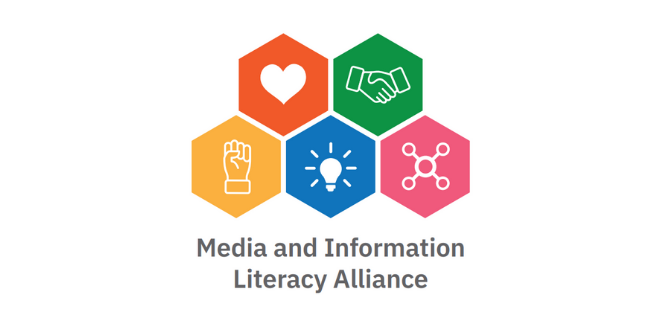
By
Stephane Goldstein, Executive Director of InformAll and the coordinator for MILA and Advocacy and Outreach Officer for CILIP's Information Literacy Group; and Geoff Walton, Senior Lecturer in the iSchool at Manchester Metropolitan University and a member of the Forum for Information Literacy (FOIL).
20 April 2022
The January/February issue of Information Professional carried an article introducing the new Media and Information Literacy Alliance (MILA). The Alliance has made some progress since then and in particular is taking initial steps
to ensure that it engages with stakeholders beyond the library and information professional realm.
"Information literacy (IL) continues to be a central interest to information professionals and increasingly to the academic community..."
In January, MILA’s Executive Board met for the first time. Its composition reflects a necessary diversity of outlooks, professional backgrounds and areas of expertise:
Jane Secker (Chair of the Board) – Senior Lecturer in Educational Development at City, University of London, and Chair of the CILIP Information Literacy Group
Lucy Crompton-Reid – Chief Executive, Wikimedia UK
Sue Lacey-Bryant – National Lead, NHS Library and Knowledge Services
Julian McDougal – Professor in Media and Education, Bournemouth University
Liz Moorse – Chief Executive, Association for Citizenship Teachi
ng
Lis Parcell – Subject specialist, digital practice, Jisc
Nick Poole – CEO of CILIP
Sophie Randall – Director of Patient Information Forum
Anoush Simon – Senior Lecturer in Information Studies, Aberystwyth University
Carolyn Waite – Information Development Manager, Lancashire Libraries
Useful and beneficial
An early priority for the Board is to define how MILA engages with its stakeholders in ways that are useful for them as well as beneficial for the Alliance. This means setting up simple but effective mechanisms that will allow interested
individuals and organisations to share information, take part in initiatives of mutual interest and advocate jointly. The Board has already agreed that MILA will not be set up as a formal membership body. Instead, it will function
as a federation or coalition of players with shared objectives, building synergies and helping to amplify work that is already taking place, whilst avoiding duplication with existing projects undertaken elsewhere. Other early areas
of attention for the Board will be to set out a clearly-understandable definition of media and information literacy (MIL), and charting a selection current MIL initiatives in the UK to help define future MILA projects. Another key
area for MILA is to commission relevant research. Information literacy (IL) continues to be a central interest to information professionals and increasingly to the academic community but, to extend its reach beyond these domains, MILA
believes a convincing comprehensive summary of high-quality research literature is needed. Such a product is even more necessary if we are to support our arguments of its importance with high-quality evidence and influence policy makers,
thought leaders and government.
Research and review
MILA is thus looking to fund a study to help map and extend the reach of IL beyond the higher education domain to other areas such as health, the workplace and everyday life (as reported last month, media literacy is already well-served
in terms of terms of current reviews, so the proposed study will focus more specifically on IL). The funding provided will provide a comprehensive review of IL, its key research, scholars, practitioners and impact. The review sho uld
analyse all types of research, qualitative, quantitative or mixed. It is hoped this will provide the basis for work to create greater public awareness of information literacy and its positive impact.
MILA is asking that the scope of the comprehensive review covers existing research into the role that IL plays for different user groups in society and the barriers/enablers to shaping an information literate population. It is envisaged
that the project will encompass all research-based peer-review IL research since 2005 across all sectors. The MILA working group overseeing the scoping of the project has now almost completed its work and, at time of writing, is preparing
to issue a call for proposals to identify a research team able to take this forward.
Finally, MILA is also looking forward to develop its communications strategy. The current website, will soon be expanded to reflect the Alliance’s growing areas of involvement, and there will also be a
more engaging feel to the site. Further information on joining the MILA mailing or finding out more can be found on MILA's Get involved page.




